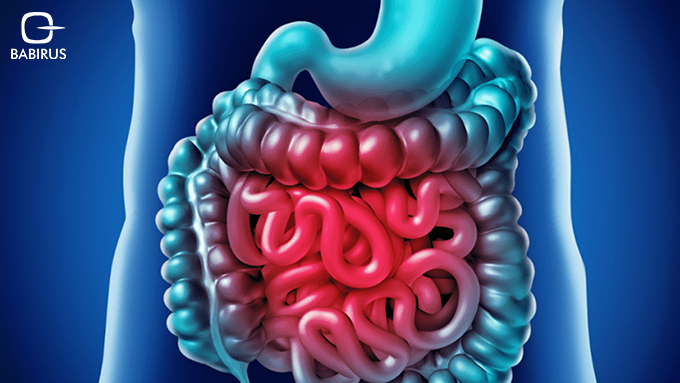SIBO in UAE: Causes, Symptoms and Testing

If you’ve been struggling with constant bloating, unpredictable digestion, or discomfort after meals, you’re not alone. A growing number of people in the UAE are discovering that their gut symptoms may be linked to a lesser-known condition, SIBO, or Small Intestinal Bacterial Overgrowth.
While it sounds complex, SIBO is more common than you might think. And with increasing awareness and access to modern diagnostics, more individuals in the UAE are starting to get the answers they’ve been looking for.
Continue reading as we break down what SIBO is, how it affects daily life, why it’s gaining attention in the UAE, and what testing and treatment options can help manage it.
What is SIBO?
SIBO stands for Small Intestinal Bacterial Overgrowth. It happens when there’s an abnormal increase in the number of bacteria in the small intestine, particularly types of bacteria that are usually found in the large intestine.
The small intestine is meant to digest food and absorb nutrients, but when bacteria start multiplying there, it can interfere with these processes. The result? Digestive chaos. Symptoms range from mild discomfort to more persistent issues that disrupt daily life.
How Common is SIBO in the UAE?
SIBO in UAE is gaining attention for good reason. As digestive health becomes a larger part of the wellness conversation, more people are seeking answers for persistent symptoms like bloating, gas, and abdominal pain. Lifestyle changes, dietary habits, stress, and the use of certain medications (like proton pump inhibitors) have all contributed to a rise in gut-related concerns, including SIBO.
While there isn’t yet a national study on the prevalence of SIBO in the UAE, clinics across the country are reporting an uptick in patients being tested for it, especially among individuals dealing with irritable bowel-like symptoms.
What Causes SIBO?
SIBO is not a disease in itself, it’s a result of an imbalance in the gut. Several factors can contribute to the development of SIBO, including:
- Slow gut motility: When food moves slowly through the digestive tract, bacteria have more time to grow in the small intestine.
- Structural abnormalities: Conditions like adhesions or diverticula in the intestines can trap bacteria and promote overgrowth.
- Low stomach acid: Stomach acid helps keep bacteria in check. Reduced levels (due to aging or medications) can allow bacteria to flourish.
- Previous infections or surgeries: These may disrupt the natural balance of gut flora or alter the anatomy of the GI tract.
Signs and Symptoms of SIBO
SIBO can show up in different ways, and symptoms often overlap with other gastrointestinal issues. That’s why many people go months, or even years, without a proper diagnosis. Some of the most reported symptoms include:
- Persistent bloating (even hours after eating)
- Abdominal discomfort or pain
- Gas and belching
- Changes in bowel habits (constipation, diarrhea, or alternating between both)
- Fatigue and low energy
- Nutritional deficiencies, especially in Vitamin B12 or iron
- Unexplained weight loss or difficulty gaining weight
If you’ve been experiencing any of these symptoms regularly, it might be time to explore whether SIBO is playing a role.
Why SIBO in UAE Needs More Attention
There are a few factors that make SIBO especially relevant in the UAE:
- Diet and Lifestyle: Many diets in the region include high-carbohydrate foods, refined sugar, and low fiber, all of which can contribute to bacterial imbalance.
- Medication Use: Overuse of acid-suppressing medications is fairly common, which may increase susceptibility to bacterial overgrowth.
- Heat and Dehydration: Hot weather and low water intake can slow digestion and affect gut motility.
- Limited Awareness: Many people attribute their symptoms to stress or food intolerance and may not consider SIBO as a possibility.
As more gastroenterologists and general practitioners in the UAE become familiar with SIBO, the hope is that earlier diagnosis and treatment will improve outcomes.
How is SIBO Diagnosed?
The gold standard for identifying SIBO in UAE is the hydrogen and methane breath test. It’s non-invasive, simple to perform, and highly effective. This test measures the amount of gas your body produces after consuming a sugar solution, typically glucose or lactulose. If bacteria are overgrown in the small intestine, they ferment these sugars, releasing gases like hydrogen or methane, which are then exhaled and measured.
One advanced tool making this process easier is the LactoFAN 2. It’s a compact and efficient breath analyzer that provides immediate results for exhaled hydrogen levels. With just a single breath, the device displays data on its clear, user-friendly screen, offering clinicians a quick way to assess bacterial overgrowth in the small intestine.
While the LactoFAN2 is commonly used for lactose intolerance and other carbohydrate malabsorption disorders, it’s also highly applicable for SIBO testing. By capturing abnormal hydrogen levels following sugar intake, it helps point directly to a possible overgrowth in the small intestine. It’s an ideal solution for clinics looking to streamline breath testing for SIBO and related gastrointestinal concerns.
Today, many specialized clinics and diagnostic centers across the UAE are incorporating tools like LactoFAN2 into their practice, making accurate SIBO testing more accessible and actionable than ever before.
SIBO and Food Intolerance: What’s the Connection?
People with SIBO often experience food intolerances, especially to foods high in fermentable carbohydrates (FODMAPs). These include:
- Onions and garlic
- Beans and lentils
- Dairy products
- Certain fruits like apples and pears
- Wheat and other grains
That’s why a low FODMAP diet is often recommended as part of SIBO treatment. By reducing the foods that feed the overgrown bacteria, symptoms can improve while the underlying issue is addressed.
It’s also worth noting that some individuals who suspect food intolerance or IBS may actually have SIBO, which is why testing is such an important part of the process.
How is SIBO Treated?
Treating SIBO typically involves a multi-step approach, including:
- Antibiotics: These are used to reduce bacterial overgrowth. Rifaximin is commonly prescribed and has minimal systemic absorption.
- Herbal Therapies: Some patients opt for herbal antimicrobials, which may include ingredients like oregano oil, berberine, and neem.
- Dietary Changes: A temporary low FODMAP diet or specific carbohydrate diet (SCD) can help reduce symptoms.
- Prokinetics: These are medications or supplements that support healthy gut motility, helping prevent recurrence.
- Addressing Root Causes: It’s important to treat any underlying issues like hypothyroidism, adhesions, or low stomach acid.
Can SIBO Come Back?
Yes, unfortunately, SIBO has a high recurrence rate. That’s why a long-term plan, including dietary changes, gut-supportive supplements, and regular monitoring is essential for keeping symptoms under control.
Working with a healthcare provider familiar with SIBO is key, especially one who understands how to personalize treatment based on your history and lifestyle.
How does SIBO Affect Nutrient Absorption
In more advanced cases, SIBO can interfere with your ability to absorb nutrients, especially Vitamin B12, magnesium, and fat-soluble vitamins like A, D, and E. This can lead to symptoms like fatigue, brain fog, dry skin, and even mood swings.
In fact, some people only discover they have SIBO after being tested for unexplained deficiencies. If you’ve been eating well but still feel low on energy, this may be something worth exploring.
Lastly,
If bloating, gas, or digestive discomfort have become part of your daily routine, it might be time to look beneath the surface. SIBO in UAE is finally getting the attention it deserves, with more people finding answers through breath testing and gut-focused care. Tools like the LactoFAN2 are making it easier for clinics to spot bacterial overgrowth early and guide patients toward more targeted treatment.
Managing SIBO isn’t always quick, but with the right testing, diet changes, and medical support, lasting relief is possible. Whether you’re just starting your journey or seeking better options, paying attention to your gut can open the door to feeling like yourself again.
At Babirus, we offer innovative diagnostic tools that support clinicians in identifying SIBO with speed and accuracy. If you’re a healthcare provider in the UAE looking to enhance your gastrointestinal testing capabilities, our team is ready to support your next step.


